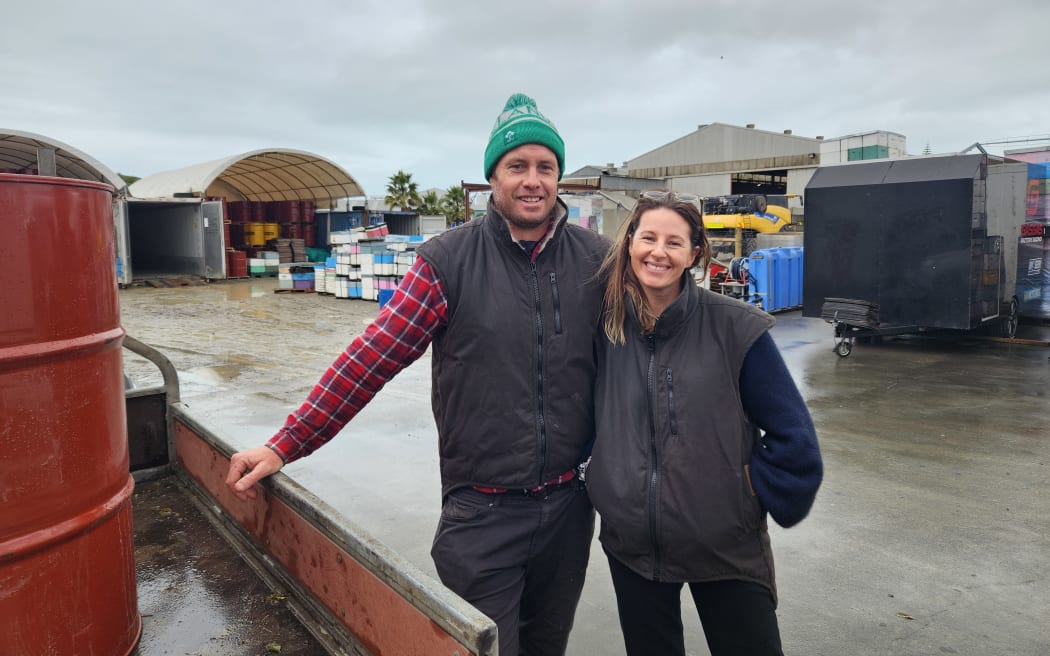
Mike and Cate King run a honey extraction plant and store honey for other producers in Gisborne, as well as keep their own hives. Photo: RNZ/Sally Round
Cate and Mike King of Pauariki Honey lost a quarter of their beehives after Cyclone Gabrielle hit Tai Rāwhiti in February, but they count themselves among the luckier honey producers in the region.
It is early June on another wet winter's day when Country Life visits the Kings' plant in an industrial area of Gisborne.
The couple and their bees, like the rest of the region, are in recovery mode.
Dozens of hives are stacked up in a corner. The bees have died, but it is hoped some of the boxes can be salvaged.
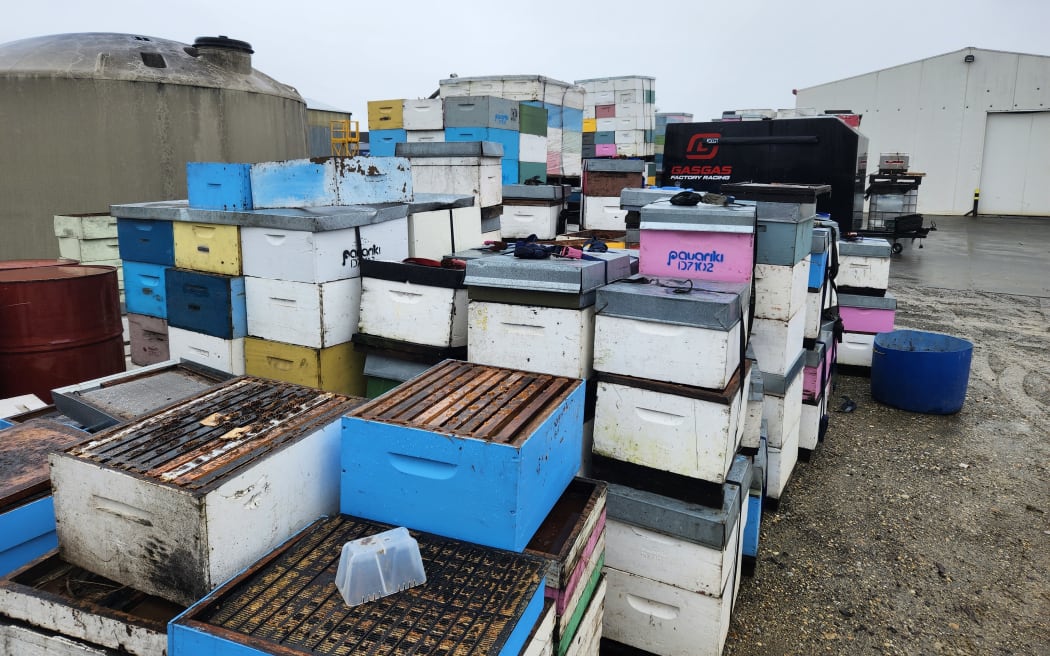
The Kings lost many hives in Cyclone Gabrielle. These ones have been salvaged and will be cleaned and repaired ready for the coming honey production season. Photo: RNZ/Sally Round
"It's a pretty constant reminder of what we've gone through," Mike said.
Gabrielle took about a quarter of the Kings' 1500 hives placed on 30 sites across the region.
We had a variety of things that happened," Mike said, as he pulled out one of the silt-laden frames from a hive among the pile.
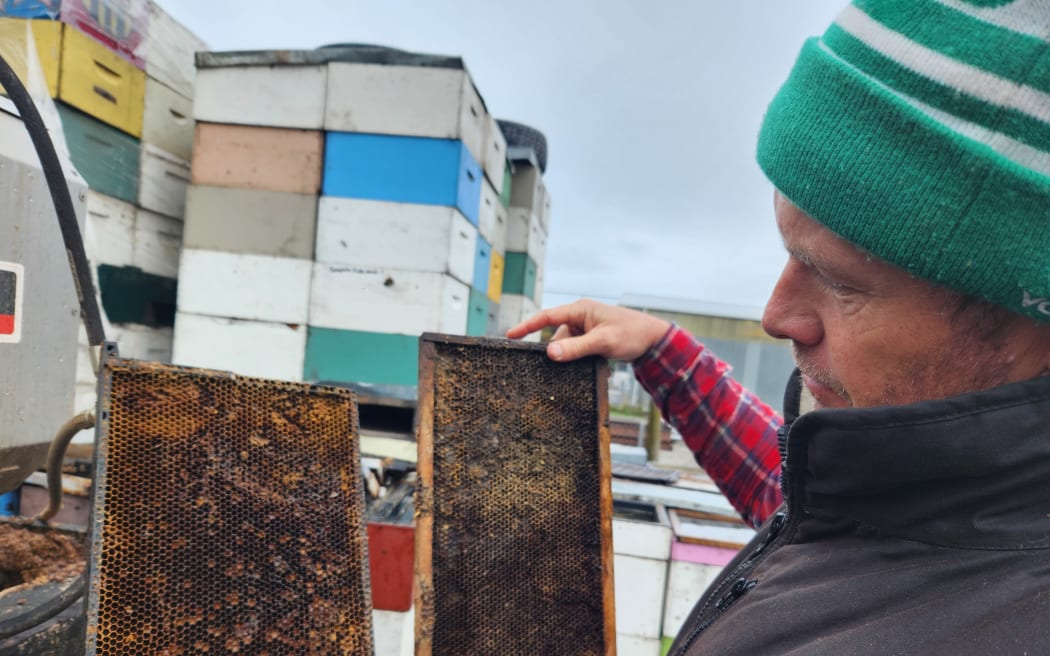
Some hives were flooded during Cyclone Gabrielle and others completely buried in silt. Photo: RNZ/Sally Round
"At one of the sites, the hives were on pallets and they were strapped down and so the water came up and slowly submerged all the hives and killed all the bees.
"Other ones were in raging torrents of water and they got washed away down the stream. We had to go and pick them up out of the river."
They were still counting their losses after collecting less than half the usual amount of honey, Mike said.
"We're not the only ones hurting," Cate added, thankful they had other strings to their bow.
Their scale and diversification into processing and storing honey for smaller beekeeping operations is helping to see them through, she said.
The couple are in the middle of a rebrand of their business, playing on their surname.
"We thought it would be quite nice to be the King Bees of the honey business in New Zealand," she laughed.
The King Bees brand would sit alongside their established Pauariki label, set up by Cate's father Bill Busby.
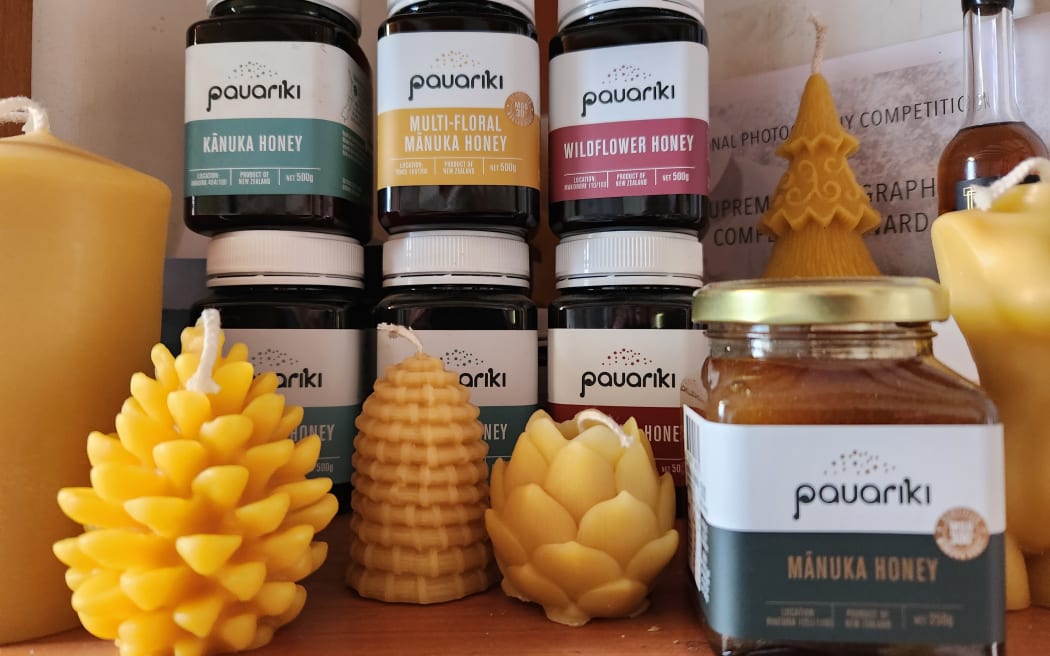
Pauariki Honey focuses on the mānuka variety. Candles are produced from the beeswax. Photo: RNZ/Sally Round
They are descendants of James Busby, one of those who signed Te Tiriti o Waitangi.
"Busby to buzzy bee has a nice ring to it I suppose!"
Cate and Mike, former teachers, became fascinated by her father's bees and decided to take on the business eight years ago.
Mike's patience and hunger to learn meant he is now thriving in New Zealand's beekeeping world, Cate said.
He shows Country Life some of those skills, checking for varroa mites in hives wintering over in a lush lemon grove not far from their honey hub.
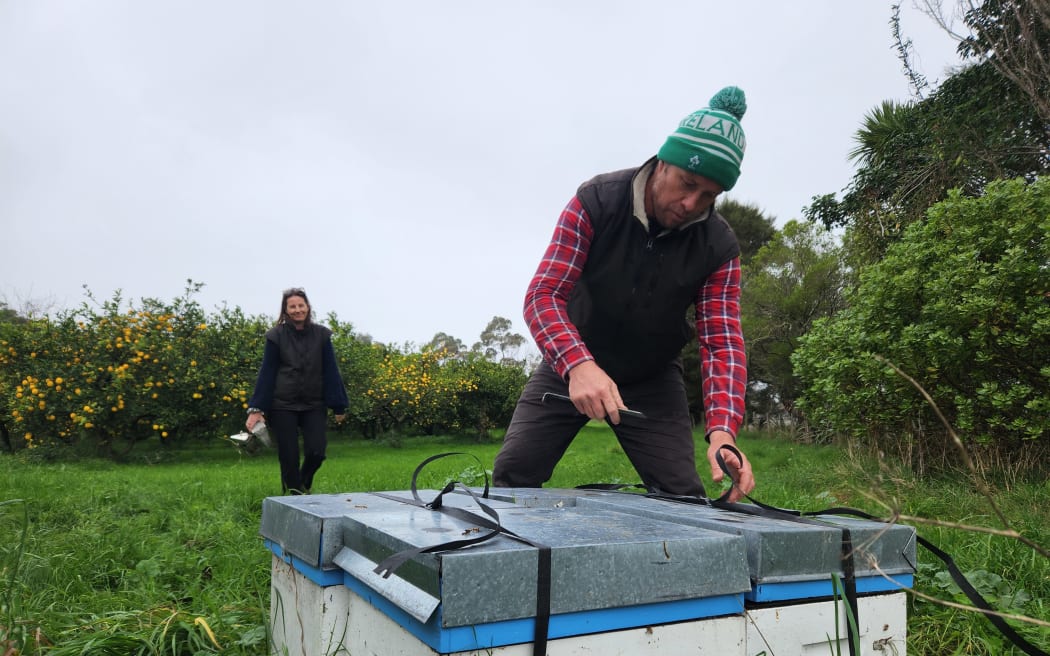
Mike King checks hives for varroa mite as Cate stands by with the smoker Photo: RNZ/Sally Round
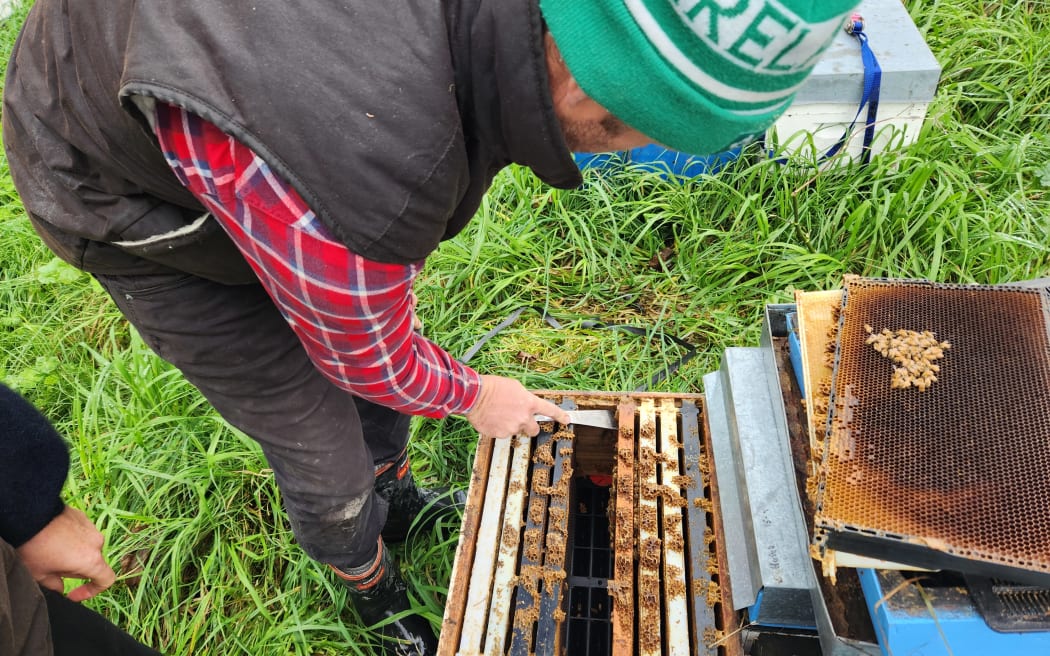
Mike checks the bees are healthy. They are wintering over in a citrus orchard. Photo: RNZ/Sally Round
"People are having to work harder to do alternative treatments," Mike explained as he doused the sleepy bees in a jar of icing sugar, watching for any of the invasive pest to fall off.
The mites are becoming resistant to traditionally used synthetic treatments done maybe twice a year, he said.
"You're having to treat using different methods, organic compounds and multiple times throughout the year, not just twice."
In the aftermath of the cyclone, poor or no access to their hives meant they were about six weeks behind treating for varroa.
Varroa is just another in the plethora of problems the wider New Zealand honey industry faces, including the recent loss in its fight with Australia over the lucrative "mānuka" label.
Still, these proud East Coasters will not let a cyclone and other issues detract from the inherent beauty of the region and the honey - and art - it produces for them.
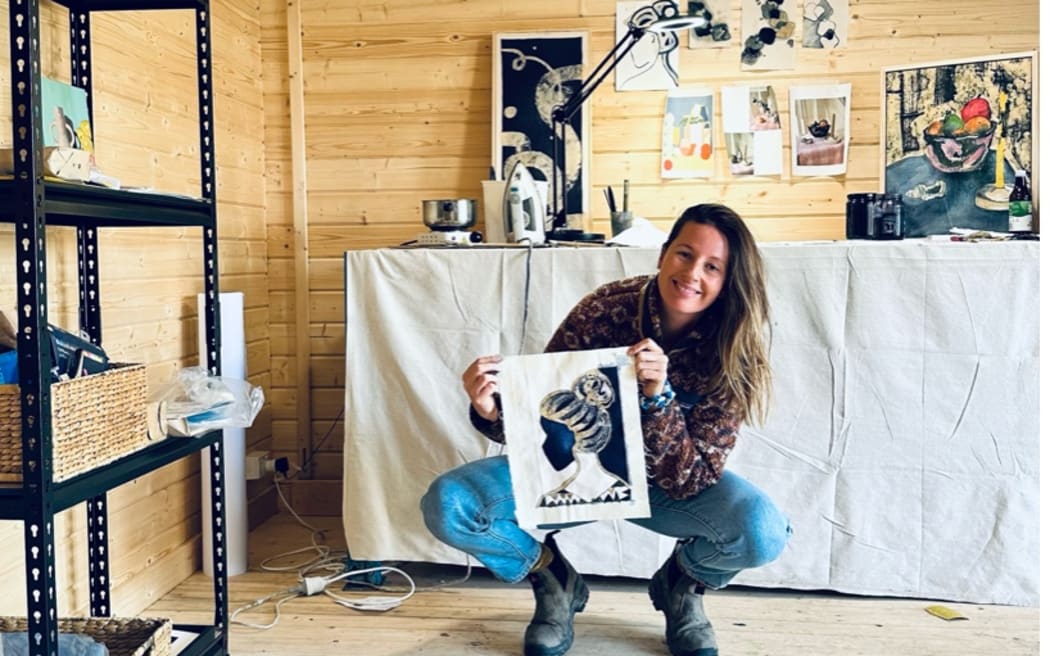
Cate King in her art studio. She uses beeswax from her honey business to make batik-style artwork. Photo: Supplied
The scenery on their trips to hives around the region has helped inspire Cate to get back into art, and the bees are helping her, too.
Most Fridays she heads from the honey factory to her art studio, where she uses beeswax from the hives, in batik-style, to create distinctive still-lifes, landscapes and other pieces which she sells online via @resist_studio on Instagram.
"It's rough, it's rugged, the people are raw and beautiful.
"We love the East Coast, we love Gisborne and we really want to share that with the rest of the world."
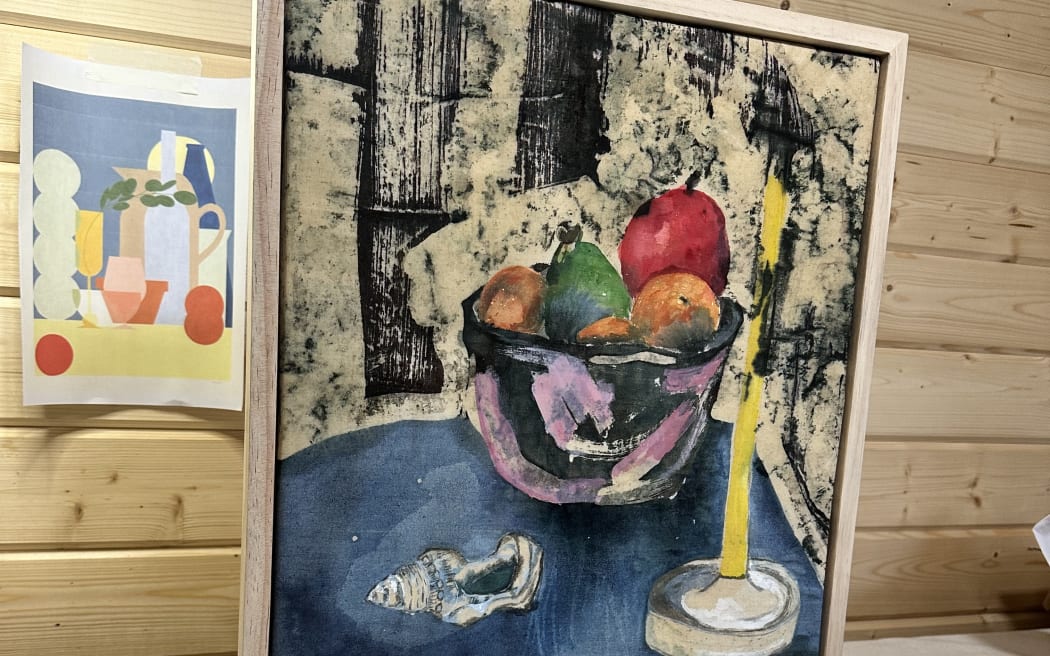
One of Cate's batik-style still lifes Photo: Supplied
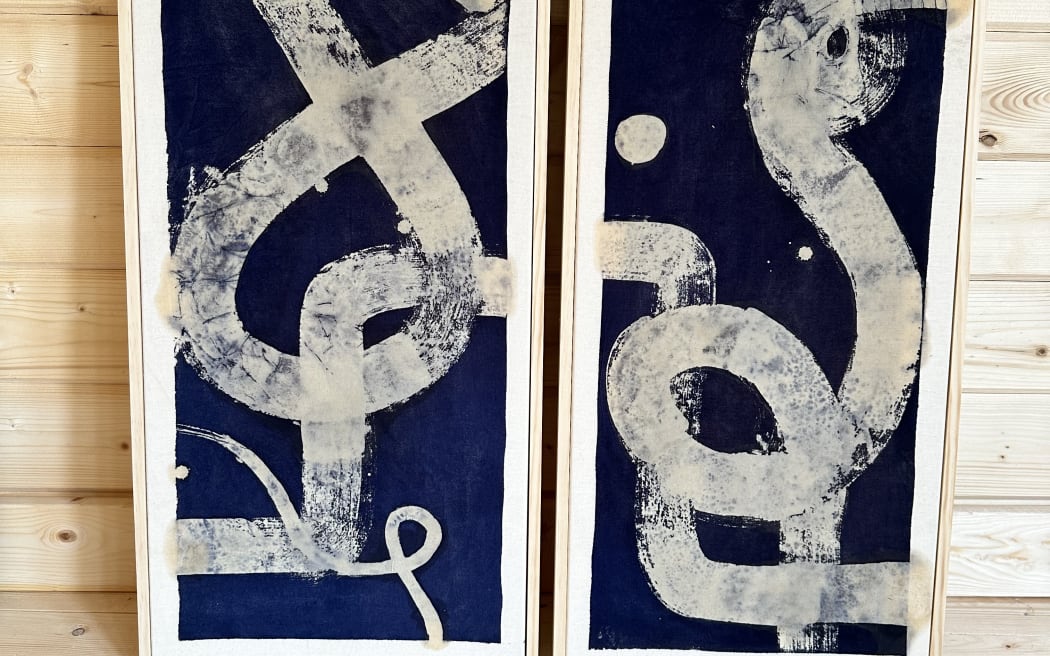
Cate started experimenting with batik-style art during the first Covid-19 lockdown. Photo: Supplied


